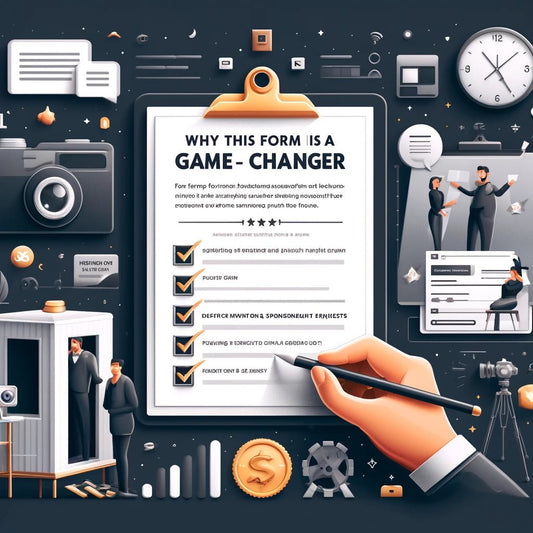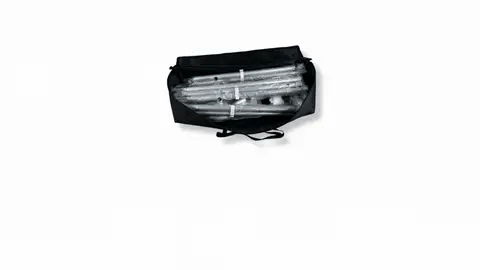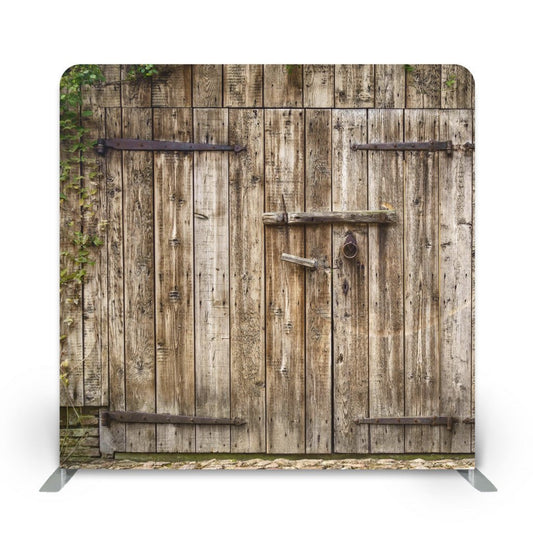
Ultimate Guide to Corporate Event Branding: Strategies for Success
Share
.jpg)
Corporate event branding plays a crucial role in creating a unique and memorable experience for attendees while also reinforcing the company's brand identity. It involves strategically incorporating the brand's visual elements, messaging, and values into every aspect of the event. By doing so, corporate event branding helps establish a strong brand identity, build trust and credibility, and enhance the overall attendee experience.
Consistent visual branding is a key element of successful corporate event branding. This includes using consistent colors, fonts, and logos throughout all event materials and signage. Engaging event messaging that aligns with the brand's voice and values is also essential in creating a powerful brand presence. personalization and customization can make attendees feel more connected to the brand and create a more impactful experience. Integration with social media platforms allows for wider reach and engagement, enabling attendees to share their experiences and generate buzz.
Incorporating corporate event branding requires careful planning and execution. Developing a brand strategy that aligns with the event objectives and target audience is vital. Designing branded event collateral, such as invitations, banners, and promotional materials, helps create a cohesive and visually appealing event experience. Creating branded event experiences, such as interactive displays or branded activities, further reinforces the brand image.
Measuring the success of corporate event branding is crucial for evaluating its impact. Post-event surveys and feedback can provide valuable insights into attendee perception and satisfaction. Social media engagement and reach metrics, such as the number of shares and impressions, can indicate the event's online visibility and impact. Lastly, assessing the return on investment (ROI) and business impact, such as increased brand recognition or lead generation, helps determine the overall success of the branding efforts.
Examining successful case studies of corporate event branding can provide inspiration and best practices for implementing effective strategies. By learning from the experiences of other brands and applying proven tactics, companies can enhance their own corporate event branding efforts and create impactful and memorable experiences for attendees.
What is Corporate Event Branding?
Corporate event branding is the process of creating a unique and memorable identity for a corporate event that aligns with the company's overall brand image and objectives. So, what is corporate event branding? It involves using various elements such as logos, colors, slogans, and messaging to consistently communicate the event's purpose and values. Successful corporate event branding helps create a cohesive and impactful experience for attendees and enhances brand recognition and reputation. It also contributes to building positive associations and reinforcing key messages. By applying consistent branding across all aspects of the event, from invitations to signage and promotional materials, companies can effectively engage their target audience and leave a lasting impression.
The Importance of Corporate Event Branding
Discover the undeniable impact of corporate event branding! From creating a strong brand identity to building trust and credibility, and enhancing the attendee experience, this section uncovers the significance of corporate event branding. Step into the world of captivating brand narratives, immersive experiences, and powerful connections that corporate event branding can bring. Get ready to explore the keys to successful branding that leaves a lasting impression in the minds of your audience.Creating a Strong Brand Identity
Creating a strong brand identity is crucial for successful corporate event branding. It helps in establishing a recognizable and consistent image for the event, building trust among attendees, and enhancing their overall experience. Here are key elements to consider when creating a strong brand identity:
By focusing on these elements, corporate event planners can create a strong brand identity that resonates with attendees and leaves a lasting impression.
Building Trust and Credibility
- Building trust and credibility is essential in corporate event branding. Establishing a strong and positive reputation is crucial as it can result in increased attendee satisfaction and loyalty.
- Consistency: One key strategy to build trust and credibility in event branding is to ensure consistency in your branding elements, such as logos, colors, and messaging. It is important to maintain a consistent visual identity and tone throughout all event materials and communications.
- Transparency: Another important strategy is to be honest and transparent in your event communications. Provide accurate information and address any concerns openly. This will help in building trust and credibility among attendees.
- Quality: Delivering high-quality content, speakers, and experiences is a great way to demonstrate your commitment to excellence. This will help in building trust and credibility in your event branding.
- Testimonials: Gathering testimonials from satisfied attendees and sharing them can greatly contribute to building credibility and social proof. These testimonials serve as evidence of the positive experiences and satisfaction of past attendees.
- Networking Opportunities: Creating opportunities for meaningful networking among attendees is also critical in building trust and relationships. Facilitating networking sessions and activities can help foster trust and credibility in your event branding.
Enhancing the Attendee Experience
When organizing a corporate event, it is essential to prioritize enhancing the attendee experience. To accomplish this, event planners should pay attention to the following vital areas:
- Seamless Registration Process: Implementing a user-friendly online registration system that is quick and efficient will ensure a smooth check-in experience for attendees, thereby enhancing their overall satisfaction.
- Interactive Sessions: To actively engage attendees and encourage their participation, it is important to incorporate interactive elements such as Q&A sessions, panel discussions, and workshops during the event.
- Networking Opportunities: Boost networking opportunities by organizing dedicated networking sessions, providing networking tools or apps, and creating designated lounges or areas where attendees can easily connect with one another.
- Personalization: Offering personalized agendas that allow attendees to select sessions of interest to them, as well as providing customized event materials or gifts, adds a personal touch and enhances the event experience.
- Engaging Content: It is critical to curate highly relevant and engaging content that not only adds value to attendees' professional growth but also aligns with their interests and the latest industry trends.
- Innovative Technology: Leveraging innovative technologies such as event apps, live polling, virtual reality experiences, and interactive displays can create memorable and immersive experiences that contribute to enhancing the overall attendee satisfaction.
- Exceptional Hospitality: To ensure attendee satisfaction, event organizers should prioritize providing exceptional customer service, comfortable seating arrangements, quality catering, and a friendly and welcoming environment.
Key Elements of Successful Corporate Event Branding
When it comes to successful corporate event branding, certain key elements play a crucial role in ensuring its effectiveness. From consistent visual branding and engaging event messaging to personalization and customization, each component adds a unique touch to the overall branding experience. Integrating these efforts with social media platforms amplifies the impact and reaches a wider audience. Let's dive into the details of these key elements and unravel the secrets behind creating a memorable and impactful corporate event branding strategy.Consistent Visual Branding
Consistent visual branding is absolutely crucial when it comes to effective corporate event branding. It plays a key role in creating a memorable and cohesive event experience for all attendees. To ensure consistent visual branding, it's important to focus on the following key aspects:
By maintaining consistent visual branding, you have the power to strengthen your company's identity and make a long-lasting impression on all attendees.
Engaging Event Messaging
Engaging event messaging is a crucial element of successful corporate event branding. It helps create a memorable and impactful experience for attendees, leaving a lasting impression of the event and the brand. To ensure effective event messaging, consider the following:
- Clear and concise communication: Craft messages that are straightforward, easy to understand, and align with the event's objectives.
- Compelling storytelling: Use narratives and storytelling techniques to engage attendees emotionally and connect with the brand.
- Interactive communication: Incorporate interactive elements like Q&A sessions, polls, and live discussions to encourage active participation and engagement.
- Incorporating visuals: Utilize visually appealing graphics, videos, and presentations to support the messaging and enhance audience engagement.
- Personalization: Tailor messages to cater to the specific interests and needs of the target audience, creating a more personalized and relatable experience.
- Consistency: Ensure consistent messaging throughout all event materials, including invitations, programs, signage, and presentations, to reinforce the brand's image and message.
Personalization and Customization
Personalization and customization are crucial components for a triumphant corporate event branding strategy. By tailoring the event experience to each individual attendee, you can establish a stronger connection and leave a memorable impression.
- Customized invitations: Personalize invitations by using attendees' names and highlighting specific event details that are relevant to them.
- Bespoke experiences: Offer customizable options during the event, such as personalized agendas or activity choices, to ensure attendees feel valued and well-cared for.
- Branded giveaways: Provide attendees with personalized branded items, like monogrammed tote bags or engraved name badges, as keepsakes to take home.
- Targeted content: Customize the event program and workshops to cater to the interests and needs of different attendee groups, ensuring maximum engagement and relevance.
In the early 20th century, the Ford Model T revolutionized the automobile industry by introducing customization options. Customers were able to choose their preferred vehicle's color, seating configuration, and accessories, thereby personalizing their driving experience. This innovative approach to customization set the stage for the future of personalization across various industries, including corporate event branding.
Integration with Social Media
Integrating social media into corporate event branding can significantly enhance engagement and reach. Here are some ways to do it:
- Create branded event hashtags for attendees to use when posting about the event on social media platforms.
- Encourage real-time social media updates during the event, fostering excitement and interaction.
- Engage with attendees through live streams and Q&A sessions on social media platforms.
- Showcase user-generated content on event social media pages, promoting attendee involvement.
- Utilize targeted social media ads to reach a wider audience and attract potential attendees.
- Share event highlights, photos, and videos on social media after the event, extending its lifespan and keeping attendees connected.
Integrating social media with corporate event branding can significantly enhance engagement and reach. Here are some strategies to achieve this:
- Create branded event hashtags for attendees to use when posting about the event on various social media platforms.
- Encourage real-time social media updates during the event, which will foster excitement and stimulate interaction.
- Engage with attendees through live streams and Q&A sessions on the chosen social media platforms.
- Showcase user-generated content on the event's social media pages to promote attendee involvement and interaction.
- Utilize targeted social media ads to widen the reach and attract potential attendees to the corporate event.
- Post event highlights, photos, and videos on social media after the event, thereby extending its lifespan and maintaining connections with attendees.
How to Incorporate Corporate Event Branding
Whether you're planning a small seminar or a large-scale conference, corporate event branding is key to leaving a lasting impression. In this section, we'll explore how to effectively incorporate branding into your corporate events. From developing a solid brand strategy to designing eye-catching event collateral and creating unforgettable branded experiences, we'll unlock the secrets to making your event truly memorable. Get ready to elevate your corporate events to new heights with the power of branding.Developing a Brand Strategy
Developing a brand strategy is essential when it comes to corporate event branding as it helps to establish a cohesive and powerful brand image. To successfully develop a brand strategy, consider the following steps:
- Clearly define your brand objectives and goals.
- Gain an understanding of your target audience and their preferences.
- Conduct a thorough brand audit to evaluate your current brand position.
- Create a distinct brand identity that aligns seamlessly with the theme and messaging of your event.
- Craft compelling brand messages that deeply resonate with your audience.
- Choose a brand voice and tone that effectively reflects the personality of your event.
- Create comprehensive brand guidelines to ensure consistency across all event materials and communication channels.
- Identify various branding opportunities within different touchpoints of your event, such as signage, promotional materials, and online platforms.
- Consistently implement your brand strategy throughout the entire event planning and execution process.
Designing Branded Event Collateral
Designing Branded Event Collateral is an integral aspect of corporate event branding as it plays a vital role in creating a cohesive and visually appealing experience for attendees. To ensure that the collateral accurately reflects the brand, consider the following steps:
1. Define the brand identity: Gain a clear understanding of the brand's values, mission, and target audience. This knowledge will help in accurately reflecting the brand in the collateral.
2. Create a visual style: Develop a consistent visual language by carefully choosing colors, fonts, and graphics that align with the brand's image.
3. Design logos and branding elements: Incorporate the brand's logo and other visual elements into all collateral, including signage, banners, and promotional materials. This will reinforce the brand identity throughout the event.
4. Choose high-quality printing materials: Opt for materials that not only appear professional but also convey the brand's commitment to quality and attention to detail.
5. Include relevant information: Ensure that the collateral provides essential event details, such as the date, time, location, and any additional instructions or branding messages. This will help attendees stay informed.
6. Customize for different touchpoints: Tailor the collateral to enhance the attendee experience at various touchpoints during the event. Consider areas like registration, welcome kits, name badges, and event programs.
7. Proofread and review: Double-check all collateral for accuracy, grammar, and consistency with the brand's messaging and style. This will help maintain a professional image.
8. Distribute effectively: Plan the distribution of the collateral strategically to maximize its impact and reach the intended audience.
By following these steps, you can ensure that Designing Branded Event Collateral successfully contributes to a memorable and cohesive event for attendees.
Creating Branded Event Experiences
Creating Branded Event Experiences is crucial for achieving successful corporate event branding. It entails incorporating personalized and immersive elements that will undoubtedly leave a lasting impression on attendees. Here are some effective ways to create truly memorable branded event experiences:
- Interactive activities: Engage attendees by offering hands-on experiences such as virtual reality booths or interactive games.
- Thematic decorations: Set the tone and atmosphere of the event through visually appealing and on-brand decorations that reflect the essence of the brand.
- Sensory elements: Infuse sensory elements like scent, sound, and taste to create a multisensory experience that truly aligns with the brand.
- Unique venues: Opt for venues that exude the values and personality of the brand, providing a distinct and unforgettable experience.
- Branded giveaways: Delight attendees with branded merchandise that serves as a tangible reminder of the event.
By prioritizing the creation of Branded Event Experiences, companies can reinforce their brand identity, foster positive connections with attendees, and significantly enhance the overall impact of the event.
Measuring the Success of Corporate Event Branding
Measuring the success of corporate event branding is essential for understanding its impact and effectiveness. From gauging attendees' sentiments through post-event surveys and feedback to assessing the reach and engagement on social media platforms, we'll explore various avenues to determine the level of success achieved. We'll delve into the tangible benefits and return on investment (ROI) that corporate event branding can have on a business. So, let's dive into this section and uncover the metrics that truly matter!Post-Event Surveys and Feedback
Collecting post-event surveys and feedback is crucial for evaluating the success of corporate event branding and obtaining invaluable insights for future improvements.
- Utilize online surveys or paper-based questionnaires to gather feedback from attendees, sponsors, and stakeholders.
- Assess the satisfaction levels of attendees with regards to various aspects including event organization, content, speakers, and overall experience.
- Evaluate how well the event branding resonated with attendees and if it effectively communicated the desired brand message.
- Analyze the received feedback to identify areas in need of improvement and make the necessary adjustments for upcoming events.
- Make use of survey data to track key metrics such as Net Promoter Score, customer loyalty, and brand awareness, in order to measure the success of the event branding.
Social Media Engagement and Reach
Social media engagement and reach are essential factors in the success of corporate event branding. It is crucial to consider the following key points:
- To generate buzz, make use of various social media platforms to create excitement and anticipation for the event.
- Encourage attendees to engage with your brand through contests, polls, and interactive posts, creating interactive content.
- One effective strategy is to create a unique event hashtag, allowing you to organize and track conversations while increasing visibility.
- Utilize live streaming to share live updates, presentations, and behind-the-scenes content. This enables you to reach a wider audience.
- Enhance your reach and credibility by collaborating with industry influencers as a part of influencer partnerships.
- After the event, keep the conversation going by sharing highlights, testimonials, and follow-up content for post-event engagement.
ROI and Business Impact
- To measure the success of corporate event branding, it is crucial to evaluate the return on investment (ROI) and the overall business impact.
- Here are some effective ways to assess the ROI and business impact of corporate event branding:
- Post-Event Surveys and Feedback: Gather feedback from attendees and stakeholders to gain insights into their perceptions, satisfaction levels, and any behavioral changes resulting from the event, thereby measuring the ROI and business impact.
- Social Media Engagement and Reach: Monitor social media platforms for mentions, likes, shares, and comments related to the event. By analyzing reach and engagement metrics, you can gauge the visibility and impact of the event, thus determining its ROI and business impact.
- Evaluate financial benefits derived from the event, such as sales generated, partnerships formed, or new leads acquired. Assess the impact of the event on brand reputation, customer loyalty, and overall business growth, effectively quantifying its ROI and business impact.
Case Studies: Successful Corporate Event Branding Examples
Successful corporate event branding can leave a lasting impression on participants and create a positive image for the company. Here are some case studies of successful corporate event branding examples:
- Google's "Google I/O" conference: This event showcases Google's innovative technology and creates excitement around their brand.
- Apple's "Worldwide Developers Conference": This event provides a platform for Apple to showcase new products and create a sense of exclusivity for their developer community.
- TED Talks: These events bring together thought leaders and innovators to share ideas and inspire attendees, building a strong brand reputation for TED.
Suggested strategies for successful corporate event branding include creating a unique theme, incorporating interactive elements, and leveraging social media to build buzz and engage attendees.
Tips and Best Practices for Corporate Event Branding
When it comes to corporate event branding, there are several tips and best practices to consider for a successful and impactful event.
- Define your brand: Clearly identify your company's values, mission, and personality to create a cohesive brand identity.
- Consistency is key: Ensure that your branding elements such as logo, colors, and fonts are consistent across all event materials, including invitations, signage, and presentations.
- Engage your audience: Create interactive experiences that align with your brand and captivate attendees, incorporating technology and innovative elements.
- Personalize the experience: Tailor the event to your target audience by understanding their preferences and interests, making them feel valued and connected to your brand.
- Continued engagement: Extend the impact of the event by maintaining communication with attendees through follow-ups, social media, and personalized thank-you messages.
Pro-tip: Incorporate experiential elements that reflect your brand's unique qualities, leaving a lasting impression and strengthening brand loyalty.
Frequently Asked Questions
What are appreciation events and why are they important for corporate event branding?
Appreciation events are corporate events that aim to strengthen connections with current employees, future talent, and clients. They can range from parties to networking events. Appreciation events are important for corporate event branding as they provide an opportunity to showcase the company's values and culture, creating a memorable and enjoyable experience for attendees.
How can corporate summer party ideas contribute to event branding?
Corporate summer party ideas, such as refreshing drinks, bold color palettes, and engaging outdoor activities, can contribute to event branding by creating a unique and memorable experience for attendees. These ideas help in building a strong brand image and associating the company with fun and enjoyable corporate events.
What role does brand marketing play in corporate event branding?
Brand marketing is essential for corporate event branding as it helps in expanding the reach of the company's brand. By incorporating brand marketing strategies into event branding, such as turning a logo into an experience, companies can create a strong brand presence and ensure that their target audience is engaged and impressed.
How important is securing a venue in corporate event branding?
Securing a venue is crucial in corporate event branding as it sets the tone and atmosphere for the entire event. The venue should align with the company's brand image and provide a suitable space for implementing event branding elements, such as wow-worthy décor and branded entertainment, to create an immersive and memorable experience for attendees.
Why is unique catering important for corporate event branding?
Unique catering is important for corporate event branding as it adds a special touch to the overall experience. By offering innovative and memorable food and drink options, companies can create a lasting impression on attendees and reinforce their brand message. Unique catering enhances the overall event branding and helps in creating a differentiated and impressive corporate event.
How do corporate events help in finding new customers and targeting specific audiences?
Corporate events provide a platform for companies to directly engage with their target audience and create meaningful connections. By organizing events such as trade shows, product launches, and charity events, companies can showcase their products and services, raise brand awareness, and attract new customers. Corporate events allow companies to speak directly to their target audience, understand their needs, and build long-lasting relationships.






